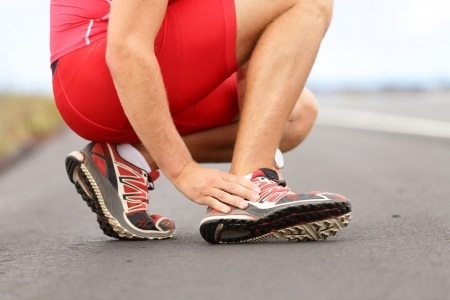See a Podiatrist for a Sprained Ankle
/What’s getting you outside these days? Great spring weather is finally helping Monmouth County residents find more hours in the sun for yard work, walking, running, biking, and tossing a Frisbee. Unfortunately, accidents happen. All these activities come with injuries as well as fun. One of the most frequent injuries we see here at Affiliated Foot & Ankle Center is the sprained ankle.
Sprains explained
The ankle is the most common place in the human body to experience a sprain. So what exactly is a sprained ankle? It’s damage to the ligaments - tough, fibrous tissues that connect the ankle bones and allow free movement of the ankle. In a split second, you can turn or twist your ankle the wrong way, pulling on the ligaments so that they stretch too far or tear.
We divide sprains into three categories:
A grade 1 sprain means that a ligament has been stretched beyond its natural capacity.
A grade 2 sprain means you’ve got some tears within the ligament.
A grade 3 sprain means the ligament has completely torn.
When should you see a doctor?
You can treat minor, low-grade sprains at home with rest, ice, compression, and elevation. But make an appointment with our board-certified podiatrists Dr. Samantha Boyd, Dr. Hal Ornstein, Dr. Dan Phan, and Dr. Joseph Saka if you have a lot of pain, can’t move your ankle at all, can’t put any weight on it, or your pain gets worse instead of better. A severe sprain makes the ankle unstable and may require surgery to fully heal.
Prevent sprains
You can prevent ankle sprains by staying still - just don’t move, pivot, land awkwardly, or gracelessly fall off a curb. But of course, we jest. We don’t want you to stop all your activities! However, there are a couple of things you can do to minimize your risk:
Strengthen the muscles surrounding your ankle with regular exercise. Strong muscles act like a shield, protecting and supporting the tissues and bones of your joints.
Always wear supportive shoes appropriate for your activity.
Contact us in Howell or Jackson, New Jersey for expert care and treatment following an ankle injury. Call (732) 905-1110 or make an appointment online.


